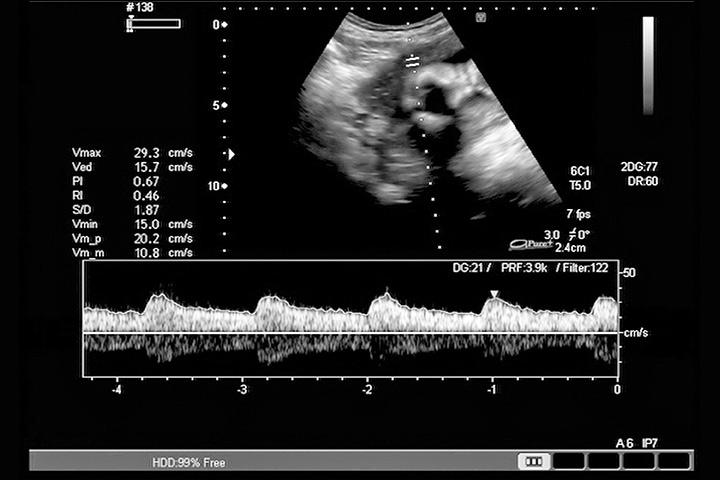Pregnancy is an exciting time, and one of the most important milestones in the early stages of pregnancy is the development of the baby’s heartbeat. For many expectant mothers, hearing their baby’s heartbeat for the first time is an emotional and unforgettable experience. But when does a baby develop a heartbeat? Let’s take a closer look.
Table of Contents
When Does A Baby Develop A Heartbeat?
The development of a baby’s heartbeat is a complex process that begins in the early stages of pregnancy. In fact, by the time most women discover they are pregnant, their baby’s heart has already started to beat. Typically, a baby’s heart will begin to beat between 5 and 6 weeks gestation.
At this stage, the baby’s heart is still very small, and the heartbeat may be difficult to detect. However, as the baby grows and develops, the heartbeat becomes stronger and easier to detect. By 8 weeks gestation, the baby’s heartbeat can usually be detected with an ultrasound or Doppler device.
Why Is The Development Of A Baby’s Heartbeat Important?
The development of a baby’s heartbeat is a critical milestone in the early stages of pregnancy. A strong and regular heartbeat is a sign that the baby is developing properly and is a good indicator of overall fetal health. In addition, monitoring the baby’s heartbeat throughout pregnancy can help detect any potential problems or complications.
For expectant mothers, hearing their baby’s heartbeat for the first time can be an emotional and unforgettable experience. It can also provide reassurance and peace of mind that their baby is healthy and developing as expected.
What Factors Can Affect The Development Of A Baby’s Heartbeat?
While the development of a baby’s heartbeat is a natural process, there are some factors that can affect the baby’s heart rate or rhythm. These include:
- Maternal age
- Maternal health
- Fetal position
- Fetal size and weight
- Fetal heart abnormalities
In some cases, these factors can result in an irregular or slow heartbeat, which may require medical intervention. However, with proper monitoring and care, most babies with heart abnormalities can be successfully treated.
What Can Expectant Mothers Do To Monitor Their Baby’s Heartbeat?
There are several ways expectant mothers can monitor their baby’s heartbeat throughout pregnancy. These include:
- Ultrasound: An ultrasound is a non-invasive imaging test that uses sound waves to create images of the baby’s internal organs and structures, including the heart.
- Doppler: A Doppler device is a handheld ultrasound device that can detect and amplify the sound of the baby’s heartbeat.
- Fetal heart rate monitor: A fetal heart rate monitor is a device that uses ultrasound or Doppler technology to monitor the baby’s heart rate and rhythm over an extended period of time.
Expectant mothers should discuss their options for monitoring their baby’s heartbeat with their healthcare provider to determine the best approach for their individual needs and situation.
 Source: bing.com
Source: bing.comThe Bottom Line
The development of a baby’s heartbeat is a critical milestone in the early stages of pregnancy. While most babies’ hearts begin to beat between 5 and 6 weeks gestation, the heartbeat may be difficult to detect at this stage. However, as the baby grows and develops, the heartbeat becomes stronger and easier to detect. Monitoring the baby’s heartbeat throughout pregnancy is an important way to ensure the baby is developing properly and to detect any potential problems or complications.
As an expectant mother, there are several ways you can monitor your baby’s heartbeat, including ultrasound, Doppler, and fetal heart rate monitoring. Talk to your healthcare provider to determine the best approach for your individual needs and situation. And remember, hearing your baby’s heartbeat for the first time is a special and emotional experience that many mothers will never forget.
Frequently Asked Questions
1. Is it normal not to hear a heartbeat at 6 weeks?
Yes, it is normal not to hear a heartbeat at 6 weeks gestation. At this early stage, the baby’s heart may be too small and the heartbeat too faint to detect. However, if you have concerns about your pregnancy or if you experience any unusual symptoms, it is important to consult with your healthcare provider.
2. What is a normal fetal heart rate?
A normal fetal heart rate is between 120 and 160 beats per minute. However, the fetal heart rate may vary depending on a number of factors, including fetal age, maternal health, and fetal activity level.
3. What does it mean if a baby’s heartbeat is irregular?
If a baby’s heartbeat is irregular, it may be a sign of a heart abnormality or other complication. Your healthcare provider may recommend additional testing or monitoring to determine the cause of the irregular heartbeat and to develop an appropriate treatment plan.
4. How often should a baby’s heartbeat be monitored during pregnancy?
The frequency of monitoring a baby’s heartbeat during pregnancy may vary depending on the individual circumstances of the pregnancy. Your healthcare provider will develop a monitoring plan that is appropriate for your individual needs and situation.
5. Can stress or anxiety affect a baby’s heartbeat?
Stress and anxiety can affect a baby’s heart rate, but in most cases, these effects are temporary and do not pose a significant risk to the baby’s health. However, if you are experiencing prolonged or severe stress or anxiety, it is important to speak with your healthcare provider to determine the best course of action.
